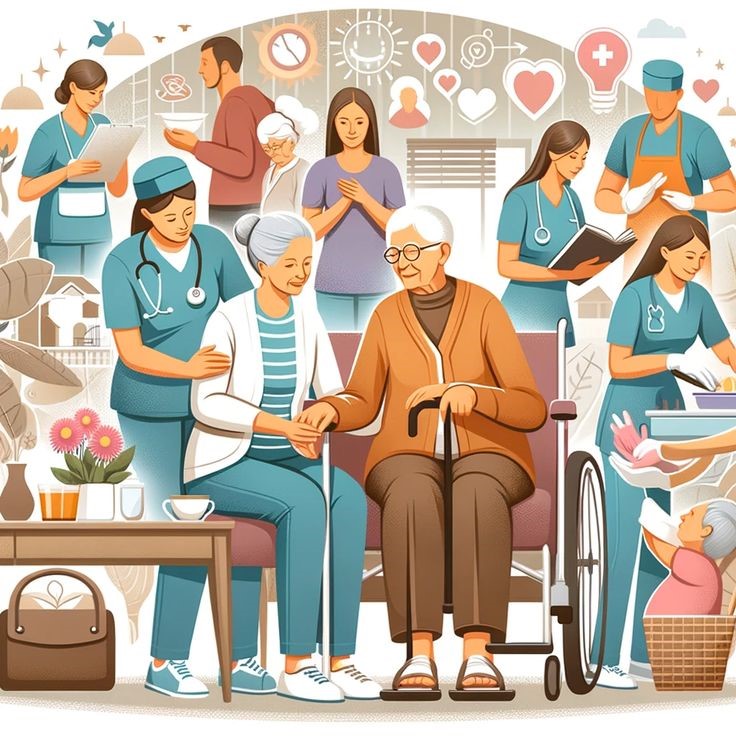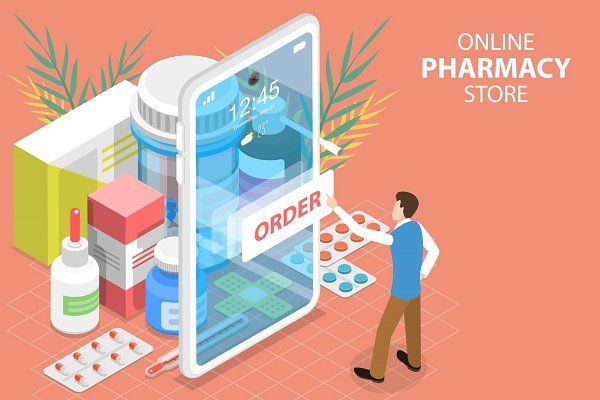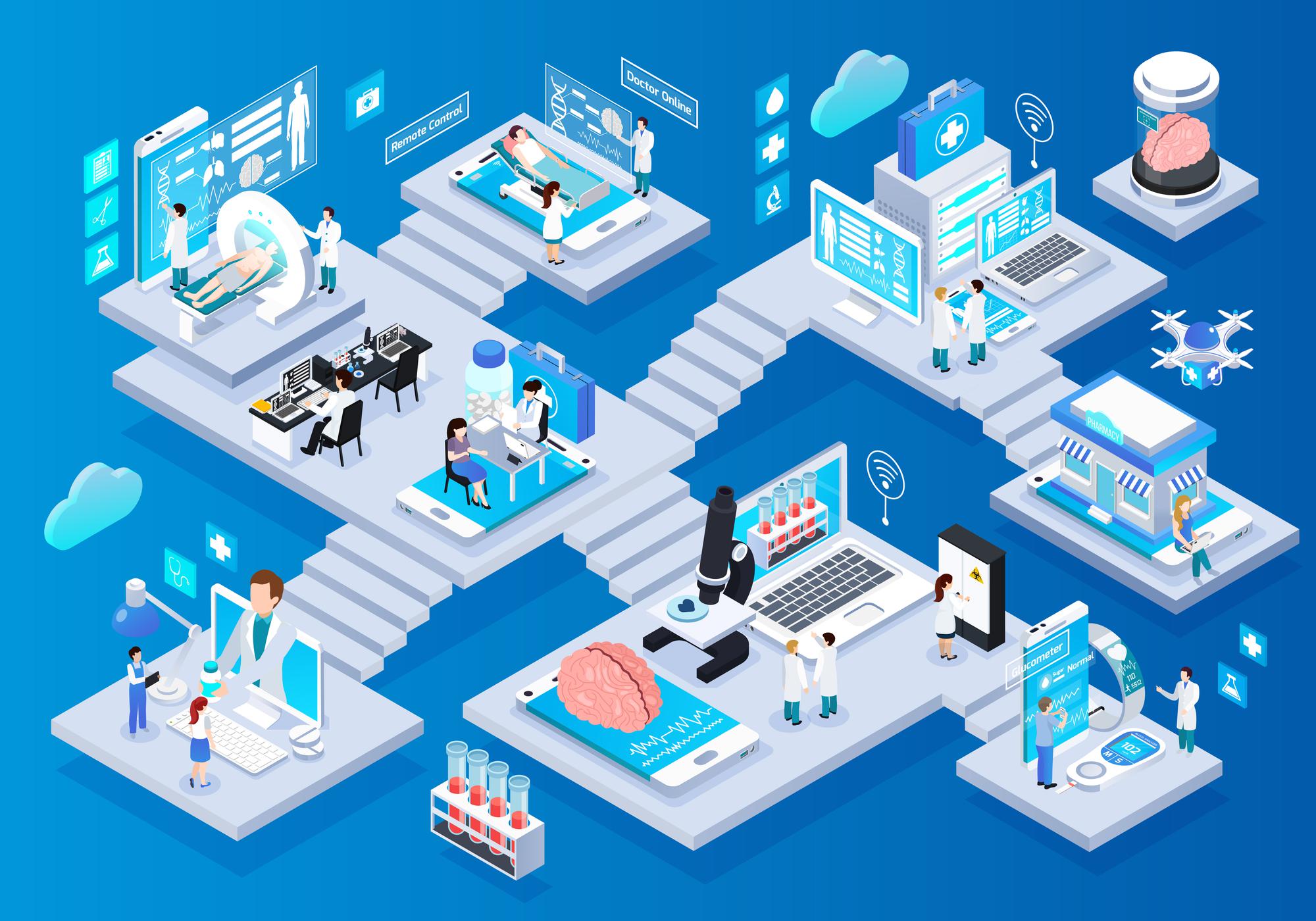
Top 7 Strategies to Improve Hospital Performance and Patient Care
In healthcare management, the significance to improve hospital performance, patient care and efficiency cannot be overstated. These fundamental aspects not only dictate the quality of healthcare services but also influence the overall patient experience. As hospitals strive to meet the evolving demands of modern healthcare, they encounter a myriad of challenges that test their ability to deliver compassionate, efficient, and effective care.
The Challenges Hospitals Face
1. Navigating the Complexities of Modern Healthcare
2. Meeting the Modern Patient's Needs
3. Supporting the Patient's Attendants and family
4. Meeting the Standards of Corporate and Referral Networks
5. Creating a Supportive Environment for Hospital Staff
6. Aligning with the Professional Expectations of Doctors and Surgeons
7. Encouraging Collaboration Among Healthcare Professionals
Navigating the Complexities of Modern Healthcares
Hospitals today grapple with a wide array of challenges, from managing the intricacies of patient care to ensuring the seamless operation of their facilities. These challenges are compounded by the need to stay abreast of technological advancements, regulatory requirements, and the ever-changing landscape of healthcare needs. Queries like "common hospital operational challenges" and "improving patient care in hospitals" reflect the ongoing search for solutions and best practices in this dynamic environment.
Understanding Patient Expectations
Meeting the Modern Patient's Needs
The expectations of patients have evolved significantly, with a greater emphasis on personalized care, transparency, and engagement in their treatment processes. Patients now often research "what to expect from hospital care" and "patient-centered care in hospitals" to better understand their rights and the standard of care they should receive. Hospitals must adapt to these simple and complex expectations by fostering an environment that prioritizes patient involvement and satisfaction.
Catering to Attendants and Relatives
Supporting the Patient's System
The role of patient attendants and relatives is crucial in the healthcare journey, and their expectations for clear communication, empathy, and support are paramount. They frequently seek information on "support for families in hospital settings" and "engaging patient families in care," highlighting the need for hospitals to extend their patient-centric approach to include the patient's immediate support network.
Aligning with Stakeholder Expectations
Meeting the Standards of Corporate and Referral Networks
Hospitals also need to meet the expectations of corporate partners, insurance providers, and referring doctors, who are integral to the broader healthcare ecosystem. These stakeholders are interested in efficient, high-quality care that aligns with their protocols and standards, often inquiring about "hospital partnership expectations" and "referral doctor satisfaction with hospital services." Ensuring alignment with these expectations is essential for maintaining strong professional relationships and a seamless continuum of care.
Meeting Staff Expectations
Creating a Supportive Environment for Hospital Staff
The backbone of any hospital is its staff, whose expectations for a supportive work environment, opportunities for professional growth, and recognition of their hard work are fundamental to their performance and job satisfaction. Staff members often seek clarity on "enhancing hospital work culture" and "staff satisfaction in healthcare settings," indicating the importance of a positive, engaging, and respectful workplace.
A critical aspect of retaining top talent within a hospital setting is the provision of continuous learning opportunities. The moment staff members feel their growth has plateaued, or the learning curve has flattened, they begin to look elsewhere for employment that promises professional development and new challenges. Therefore, hospitals must not only invest in staff development and provide the necessary tools and resources for efficient job performance but also ensure a culture of continuous learning, appreciation, and inclusivity to meet and exceed these expectations.
Understanding Doctor and Surgeon Needs
Aligning with the Professional Expectations of Doctors and Surgeons
11 expectations Doctors and surgeons have from their hospital work environment, crucial for their job satisfaction and the quality of patient care they provide. These include:
1. Clinical Autonomy:
Freedom to make decisions based on their clinical expertise.
2. Advanced Medical Technologies:
Access to the latest medical equipment and technologies for diagnosis and
treatment.
3. Efficient Collaboration:
Seamless interdepartmental collaboration for comprehensive patient care.
4. Continuous Learning:
Opportunities for ongoing education and professional development.
5. Prompt Financial Settlement:
Quick settlement of dues, regardless of patient insurance status.
6. Dedicated Consultation Spaces:
Well-designed and exclusive consultation areas that enhance the patient-doctor
interaction.
7. Professional OPD Staff:
Competent and presentable staff to manage Outpatient Departments
effectively.
8. Patient Care Coordination:
Dedicated care coordinators to keep doctors updated on their admitted
patients.
9. Adequate Parking:
Reserved parking spaces for convenience and accessibility.
10. Access to Refreshments:
Availability of refreshments to ensure comfort during long shifts.
11. Respectful Work Environment:
A culture that values and recognizes the contributions of doctors and
surgeons.
Addressing these needs is essential for hospitals to support their medical staff effectively, ensuring they can provide the best possible care to their patients.
Fostering a Collaborative Ecosystem.
Encouraging Collaboration Among Healthcare Professionals
The synergy between hospital staff, doctors, and surgeons is pivotal for efficient hospital operations and exceptional patient care. This necessitates a collaborative ecosystem where communication is streamlined, interdisciplinary teams work cohesively, and mutual respect is upheld across all levels. Addressing search queries like "improving teamwork in hospital settings" and "interdisciplinary collaboration in healthcare," hospitals can implement strategies such as regular interdisciplinary meetings, team-building activities, and integrated care planning sessions to strengthen teamwork and collaboration.
The expectations of hospital staff, doctors, and surgeons are integral to the fabric of hospital operations and patient care. By understanding and addressing these expectations, hospitals can create an environment that not only supports the professional growth and satisfaction of their workforce but also enhances the overall efficiency and effectiveness of healthcare delivery. The subsequent sections will explore strategies to meet these expectations, thereby contributing to a more cohesive, supportive, and patient-centered healthcare ecosystem.
Improving Patient Care in a Hospital
Improving patient care within hospital settings is paramount. This involves not only addressing the clinical needs of patients but also ensuring their overall experience is positive and personalized. Key strategies such as enhancing personalized patient experiences, integrating digital health records, and implementing effective patient feedback mechanisms play a crucial role in achieving this goal.
Personalized Patient Experiences
Tailoring Care to Meet Individual Needs
The cornerstone of exceptional patient care lies in personalization. Every patient comes with their unique health background, preferences, and concerns. Personalizing care involves understanding these individual needs and tailoring both treatment and communication accordingly.
Hospitals are increasingly adopting a patient-centric approach, often searched online as "how to personalize patient care in hospitals," which emphasizes the importance of treating patients as partners in their care journey. This approach not only improves patient satisfaction but also can lead to better health outcomes.
Integration of Digital Health Records (EHR/EMR)
Enhancing Care Coordination and Accessibility
The integration of Electronic Health Records (EHR) and Electronic Medical Records (EMR) is revolutionizing patient care by making health information more accessible and coordinated.
These digital systems allow for the seamless sharing of patient data among healthcare providers, ensuring that every member of the care team is informed and in sync.
Patients and healthcare professionals alike are turning to searches like "benefits of EHR in patient care" to understand how these digital tools contribute to more informed decision-making, reduced errors, and a more efficient healthcare process.
Patient Feedback Mechanisms
Leveraging Insights for Continuous Improvement
An essential aspect of improving patient care is actively seeking and incorporating patient feedback. Hospitals are implementing various feedback mechanisms, such as surveys, suggestion boxes, and digital platforms, to gather insights directly from patients and their families.
This feedback is invaluable for identifying areas of improvement and understanding patient satisfaction levels. The growing interest in "effective patient feedback systems in hospitals" highlights the recognition of patient feedback as a critical tool for enhancing service quality and patient experiences.
These improvements not only benefit patients but also contribute to a more positive working environment for healthcare providers, ultimately leading to a more effective and compassionate healthcare system.
Boosting Hospital Efficiency
Efficiency not only impacts the quality of patient care but also the hospital's ability to innovate and adapt to the changing healthcare landscape. Here are key strategies for boosting hospital efficiency:
Automation of Administrative Tasks
The automation of administrative tasks is a game-changer. By leveraging technology to handle repetitive tasks such as data entry, appointment scheduling, and patient billing, hospitals can significantly reduce the time and resources traditionally allocated to these functions.
This shift not only streamlines operations but also minimizes the potential for human error, leading to more reliable and efficient administrative processes. The integration of systems like Hospital Management Information Systems (HMIS) can be particularly effective, offering a centralized platform to manage various administrative tasks seamlessly.
Advanced Scheduling Systems
Implementing advanced scheduling systems is another pivotal strategy for enhancing hospital efficiency. These systems go beyond basic appointment scheduling, offering dynamic solutions that optimize the allocation of resources, including medical staff, equipment, and treatment rooms.
By utilizing algorithms that account for variables such as patient urgency, staff availability, and procedural requirements, advanced scheduling systems can significantly reduce wait times and improve the overall flow of hospital operations. This not only enhances the patient experience but also maximizes the utilization of hospital resources, contributing to a more efficient healthcare delivery system.
Implementing Lean Management Principles
Adopting lean management principles, derived from manufacturing and adapted to healthcare, focuses on value creation for patients while eliminating waste in processes. This approach involves a continuous effort to improve workflows, enhance quality, and reduce costs.
Key principles include defining value from the patient's perspective, mapping the value stream to identify and eliminate non-value-adding steps, and creating a culture of continuous improvement. By fostering an environment where every member of the hospital staff is engaged in identifying inefficiencies and suggesting improvements, hospitals can achieve significant enhancements in operational efficiency.
Incorporating these strategies not only propels hospitals towards greater operational efficiency but also lays the foundation for a more agile and responsive healthcare environment. As hospitals become more efficient, they are better positioned to focus on their core mission: delivering exceptional patient care.
Overall Hospital Improvement
Improving a hospital's overall performance and service quality requires a multifaceted approach that goes beyond immediate fixes and looks at long-term, sustainable development. Here are some key strategies that can significantly contribute to this goal:
Continuous Staff Training and Development
Investing in the continuous training and development of hospital staff is crucial for maintaining a high standard of patient care and operational efficiency. Regular training programs ensure that staff members, from nurses and doctors to administrative personnel, are up-to-date with the latest medical advancements, healthcare regulations, and technology tools.
Workshops, seminars, and online courses on topics like "advanced patient care techniques" or "efficient hospital management practices" can empower staff with new skills and knowledge, leading to improved patient outcomes and a more motivated workforce.
Embracing Technology and Innovation
The integration of cutting-edge technology and innovation is pivotal in transforming hospital operations and patient care. From advanced diagnostic tools to telemedicine services, technology can significantly enhance the quality and accessibility of healthcare services.
Implementing systems like Electronic Health Records (EHR), Patient Management Software, and AI-driven diagnostic tools not only streamlines workflow but also provides a more comprehensive and accurate care process.
Hospitals should actively seek out and adopt innovations that align with their service goals, ensuring they remain at the forefront of healthcare delivery.
Fostering a Culture of Continuous Improvement
This involves regularly evaluating and refining processes, encouraging feedback from staff and patients, and being open to change. Initiatives like quality circles, suggestion schemes, and regular review meetings can foster an environment where every member of the hospital feels invested in its success and empowered to contribute ideas for improvement.
By committing to staff development, leveraging technology, and cultivating a culture of improvement, hospitals can ensure they provide the best possible care to their patients while also achieving operational excellence.
Super Dr Benefits
In the quest for enhanced patient care and hospital efficiency, Super Dr emerges as a transformative solution, encapsulating a wide array of features designed to meet the multifaceted needs of modern healthcare facilities. Here's how Super Dr stands out as a comprehensive platform:
Comprehensive Solution Addressing Patient Care and Hospital Efficiency
Super Dr is not just software; it's a holistic ecosystem tailored to revolutionize hospital operations and patient experiences. By integrating functionalities that span across Electronic Health Records (EHR), patient management, billing, and more, Super Dr ensures that every aspect of hospital management is streamlined and efficient.
This comprehensive approach not only boosts operational efficiency but also significantly enhances the quality of patient care, making it an indispensable tool for hospitals aiming to thrive in the competitive healthcare landscape.
Specific Features that Align with the Discussed Improvements
Super Dr is equipped with a plethora of features specifically designed to address the key areas of improvement discussed earlier:
Personalized Patient Experiences:
Through its intuitive patient portals and mobile apps, Super Dr offers personalized care plans, appointment scheduling, and direct communication channels, ensuring that patients feel valued and involved in their care process.
Integration of Digital Health Records:
With its robust EHR/EMR capabilities, Super Dr ensures that patient data is accurately recorded, easily accessible, and securely stored, facilitating better clinical decisions and patient outcomes.
Efficiency through Automation:
Super Dr automates administrative tasks, from billing to appointment scheduling, freeing up staff to focus on patient care and reducing the likelihood of manual errors.
Advanced Scheduling Systems:
Its sophisticated scheduling system optimizes doctor and facility availability, reducing wait times and improving patient satisfaction.
Lean Management Principles:
Super Dr's analytics and reporting tools provide valuable insights into hospital operations, helping identify areas for improvement and implementing lean management practices.
Testimonials or Case Studies
The efficacy of Super Dr is best illustrated through the experiences of those who have integrated it into their healthcare facilities. Hospitals have reported remarkable improvements in patient satisfaction, operational efficiency, and overall service quality after adopting Super Dr. For instance, a multi-specialty hospital in Mumbai saw a 30% reduction in patient wait times and a 25% increase in administrative efficiency within the first six months of implementation. Another case study from a clinic in Delhi highlights how Super Dr's patient engagement tools led to a 40% increase in patient satisfaction rates.
These testimonials underscore the tangible impact Super Dr can have on transforming hospital operations and patient care, making it an invaluable asset for any healthcare facility looking to navigate the complexities of modern healthcare delivery successfully.
Conclusion
Throughout this exploration of enhancing patient care, boosting hospital efficiency, and fostering overall hospital improvement, we've delved into various strategies that are pivotal for healthcare institutions aiming to elevate their service quality and operational effectiveness.
From personalizing patient experiences and integrating digital health records to automating administrative tasks and embracing continuous staff development, the path to a more efficient and patient-centric hospital environment is multifaceted.
At the heart of this transformation lies the potential of comprehensive healthcare solutions like Super Dr, which encapsulate the essence of modern healthcare needs. Its ability to integrate various aspects of hospital management into a single, user-friendly platform makes it an invaluable asset for any healthcare institution looking to adapt to the demands of contemporary healthcare delivery.
We invite you to explore how Super Dr can transform your hospital's approach to healthcare delivery, ensuring you stay at the forefront of innovation and excellence in the ever-evolving healthcare landscape.



